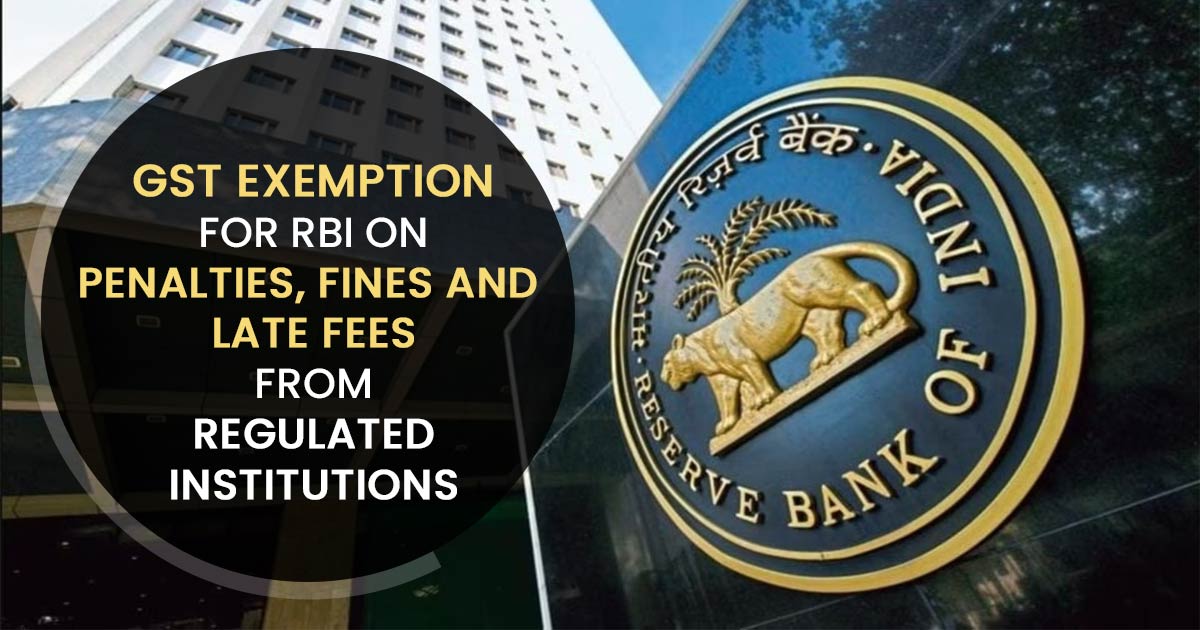
Maharashtra’s Authority for Advance Rulings (MAAR) has stated that the Reserve Bank of India will not required to file the GST on fines, and penalties collected from its controlled institutions.
RBI has moved to MAAR to obtain the advance rulings on two questions first whether the penalties, late fee/ penal interest, find the nature, levied and collected for infringement or breach of law are levied to tax under GST, and second, whether the penalty of the nature for non-performance or under performance under the contractual agreement by the RBI with the third-party vendors are imposed to tax under GST.
Read Also: Easy to Understand 21 Offences, Penalties and Appeals Under GST
Attention to a 2017 circular was drawn by the Central Bank where it was cited- “penalties imposed for violation of laws cannot be regarded as consideration charged by the government or a local authority for tolerating violence of laws.”
It mentioned that laws are not being made to tolerate their breach. They stipulate penalty not to tolerate breaches however not tolerating, penalizing, and deterring these breaches.
Under the circular, it cited that “There is no agreement between the government and the violator specifying that violation would be allowed or permitted against payment of fine or penalty. There cannot be such an agreement as violation of law is never a lawful object or consideration.”
It is being furnished by the RBI that the stance of CBIC is clear and is based on that the same could be said that fines imposed via RBI are exact to the penalties, late fees/penal interest, fines levied under various acts such as GST Act or Income Tax Act.
RBI being a legal body managing multiple acts, levies the penalties, late fees/penal interest, and fines emerging out of such legal Statutes.
Thereafter “the penalties are akin to penalties arising out of other such acts.” Thus, these penalties that the RBI imposed could not be by any stretch of the imagination be considered as consideration or being collected for any outward supply, it added.
RBI stressed that the only motive to impose the penalties, late fees/penal interest, and fines is to teach discipline amongst the Regulatees as it acts as a barrier for them.
According to the jurisdictional officer’s submission, payments in the form of penalties, late fees, and interest levied and fines of the nature levied and collected by RBI, for breaches of regulations or inadequate performance under contracts with external vendors are not considered taxable income, as they do not represent payment for a supply.
Also Read: Free Supply of Goods Under GST: Rules and Provisions
After considering all the arguments and evidence, the AAR stated that penalties imposed by the RBI for non-compliance with the laws it oversees are intended to promote discipline and deterrence in regulated banks, non-banking financial institutions, and other organizations.
In a ruling, these actives are not under consideration for an activity and therefore it comprises of a supply of service.
Indeed the penalties are like the liquidated damage imposed via RBI on third-party vendors for non-performance or underperformance under the contract. Such activities are not a supply. As per that the act shall not draw GST.
Only on the petitioner and the jurisdictional officer, the AAR ruling is applicable. It can be directed in an identical case.
| Applicant Name | M/S Reserve Bank of India |
| GSTIN of the applicant | 27AAIFR5286M1ZG |
| Date | 31.07.2024 |
| Maharashtra GST AAR | Read Order |









